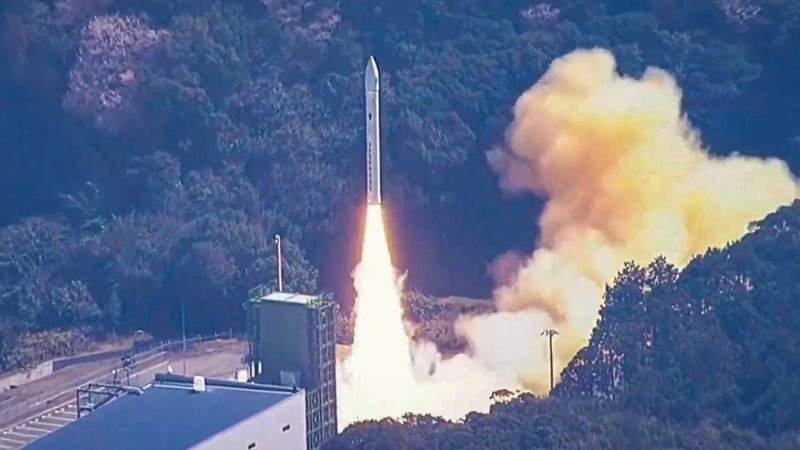
Japan's private space enterprise, Space One, faced another challenge on Wednesday when its Kairos small rocket's flight was terminated just minutes after liftoff. This marked the second failed attempt within nine months to become the nation's first company to deliver a satellite to space.
The mission was cut short approximately 10 minutes into flight, with Space One explaining that "the achievement of its mission would be difficult." Live footage from Wakayama prefecture's local government showed the 18-meter (59 ft) rocket lifting off at 11:00 a.m. (0200 GMT) from Spaceport Kii in western Japan. However, the rocket lost trajectory stability during its ascent.
Aiming for Space Leadership
Japan's government is ambitiously targeting 30 rocket launches annually by the early 2030s, hoping to position the nation as Asia's space transportation hub. This initiative is part of a broader effort to cultivate an 8 trillion yen ($52 billion) space industry. Despite recent setbacks, authorities remain committed to boosting Japan’s domestic space sector.
Details of the Mission
The Kairos rocket was carrying five small satellites, including one from Taiwan’s Space Agency, intended for sun-synchronous orbit approximately 500 km (311 miles) above the Earth's surface. Space One announced plans to investigate the incident and hold a press conference at 2:30 p.m. local time to address the failure.
This was not the first challenge for Kairos. Its debut flight in March 2024, carrying a Japanese government satellite, ended in disaster just five seconds after launch. An inappropriate flight setting had triggered the rocket's self-destruct mechanism, though the hardware was later deemed faultless.
Challenges in Japanese Rocket Development
Japan's broader rocket development efforts have also experienced hurdles. The Japan Aerospace Exploration Agency (JAXA) postponed the debut of its new Epsilon S solid-fuel rocket after repeated engine combustion test failures. JAXA's larger H3 liquid-propellant rocket failed during its inaugural launch in March 2023 but has since succeeded in three subsequent launches, securing contracts with prominent clients such as French satellite operator Eutelsat.
Additionally, Interstellar Technologies, another Japanese firm, achieved a significant milestone in 2019 by sending a rocket into space without a satellite payload. However, its orbital launcher, Zero, is still under development.
Dependence on Foreign Launch Providers
The lack of reliable domestic launch options has compelled Japanese startups, such as radar satellite manufacturer iQPS and space debris mitigation company Astroscale, to rely on international providers like SpaceX and Rocket Lab for their missions. This trend underscores the urgent need for reliable local launch capabilities to support Japan's growing space ambitions.
Space One's Vision
Established in 2018 by Canon Electronics, IHI's aerospace unit, construction company Shimizu, and a state-backed bank, Space One aims to launch 20 small rockets annually by 2029. Despite its setbacks, the company remains determined to meet the increasing demand for satellite launches.
As investigations continue into the latest failure, Space One and Japan’s space industry at large face critical challenges to establish a foothold in the competitive global market.